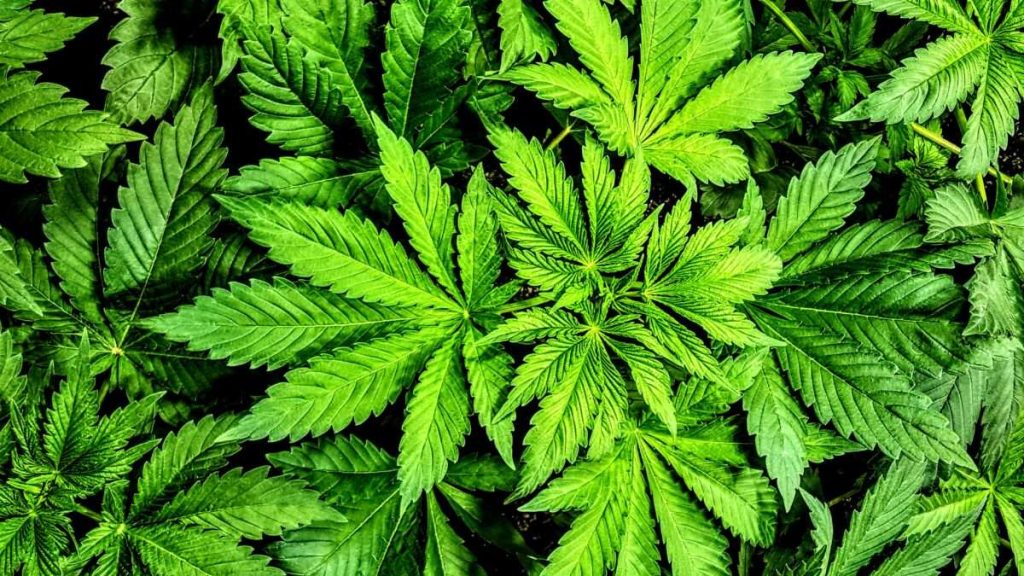
Last November, when Nebraska voters overwhelmingly approved a pair of medical marijuana initiatives, the fate of those measures was unclear because of a pending legal challenge. But a subsequent ruling rejected that challenge, allowing authorized patients to possess up to five ounces of marijuana, a change that took effect last month. The decision also cleared the way for state licensing of medical marijuana dispensaries, which could start operating next year.
Initiative 437, which passed by a whopping 42-point margin, eliminated criminal penalties for marijuana possession by patients with a recommendation from a “health care practitioner.” To meet that requirement, a physician, physician assistant, or nurse practitioner must state that, in his professional judgment, “the potential benefits of cannabis outweigh the potential harms for the alleviation of a patient’s medical condition, its symptoms, or side effects of the condition’s treatment.” The initiative does not specify which medical conditions can be treated with cannabis.
Initiative 438, which voters approved by a 2–1 margin, established the Nebraska Medical Cannabis Commission, which is required to establish criteria for licensing growers and distributors by July 1. The commission, which consists of the same three officials who comprise the Nebraska Liquor Control Commission, has to start issuing licenses by October 1.
John Kuehn, a former Republican state senator, tried to block the initiatives by arguing that many of the signatures that put them on the ballot were invalid. On November 1, Lancaster County District Judge Susan Strong ruled that the votes on the initiatives should be counted despite the pending case. Three weeks after the election, Strong dismissed Kuehn’s lawsuit, saying he had fallen far short of showing that the number of invalid petition signatures was large enough to disqualify the initiatives. “The petitions fulfill all constitutional and statutory requirements and are thus legally sufficient under Nebraska law,” Strong wrote.
On December 12, Gov. Jim Pillen issued proclamations that allowed the initiatives to take effect. At the same time, Pillen and Attorney General Mike Hilgers averred that “serious issues remain regarding the validity of these petitions under federal law and the Nebraska Constitution.” They noted that, notwithstanding the reforms approved by Nebraska voters, marijuana is still prohibited under federal law.
On December 10, when Kuehn unsuccessfully sought an injunction to prevent the initiatives from taking effect, he argued that “the votes were held on two activist-drafted initiative measures which had, to that point, evaded any judicial review for their compliance with the United States Constitution or Nebraska Constitution.” He also argued that Initiative 438 “wrongly delegates to an unelected board the people’s legislative power to determine what principles and standards—that is, what law—should govern the new marijuana industry, freezing out all other legislative or executive efforts to ensure the public’s health, safety, and welfare.” And he claimed that state authorization of medical marijuana use violates federal law, making it invalid under the U.S. Constitution’s Supremacy Clause.
The Nebraska Supreme Court will have the final word on the validity of the medical marijuana initiatives. But in the meantime, patients with medical recommendations can possess cannabis without violating state law, and they will eventually be able to obtain it from state-licensed dispensaries unless Kuehn prevails on appeal.
Nebraska, where registered Republicans outnumber registered Democrats by nearly 2 to 1, is the 39th state to allow medical use of cannabis. That list includes red states such as Alabama, Arkansas, Florida, Kentucky, Louisiana, Mississippi, Utah, and West Virginia, which is a remarkable development given how controversial medical marijuana was when California became the first state to legalize it in 1996.
The Clinton administration was so alarmed by that deviation from pot prohibition that it sought to punish doctors who recommended marijuana to their patients by revoking the registration required to prescribe controlled substances—a policy that the U.S. Court of Appeals for the 9th Circuit ultimately rejected on First Amendment grounds. Even the New York Times editorial board, which acknowledged marijuana’s medical potential, thought the Clinton administration had “little choice but to insist that Federal drug statutes be enforced.” Since medical use of marijuana “is impossible…without someone violating Federal law,” the Times said, the administration’s “aggressive campaign” against it “makes sense.”
At that point, according to a 1997 ABC News/Washington Post poll, 69 percent of Americans thought medical marijuana use should be legal. As of January 2024, according to a Pew Research Center survey, that number had risen to 89 percent, including 82 percent of Republicans and 94 percent of Democrats.
The post Medical Marijuana Legalization Takes Effect in Nebraska After Lawsuit Dismissal appeared first on Reason.com.





